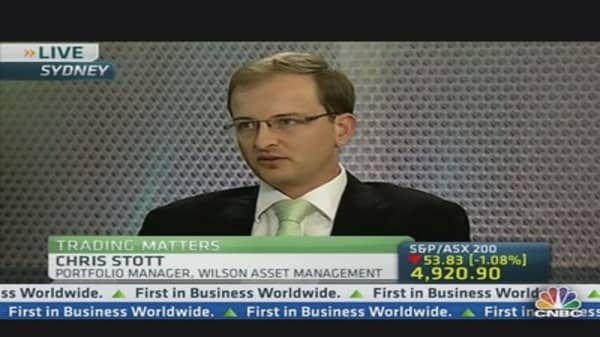Japan's benchmark index skidded below the 14,000 mark to a one-month low on Thursday, weighed down by a strengthening yen and volatile Japanese government bond yields (JGBs). The session brought the benchmark's total losses to 14 percent since last Thursday's plunge.
Investors engaged in heavy profit-taking after the yen hit 100.5 per dollar, its highest levels since May 10. Real estate stocks were amid the worst hit with Tokyo Tatemono down 10 percent.
Yields on the benchmark 10-year note hit 0.89 percent in late Asian trade after rising as high as 0.91 percent in the morning session as hesitation about price swings capped large-scale buying.
Japanese Economy Minister Akira Amari responded to the stock market fall by saying that investors should not overreact to such declines and repeated that economic policies would be pursued without anxiety in regard to recent stock market volatility.
"We are all looking at the Nikkei right now and this 5 percent drop is a shock," said Desmond Chua, a markets analyst at CMC Markets in Singapore.
"You could say it's brought on by the stronger yen, but it's also about the U.S. data coming out tonight (Thursday) and nervousness ahead of that," he added.



